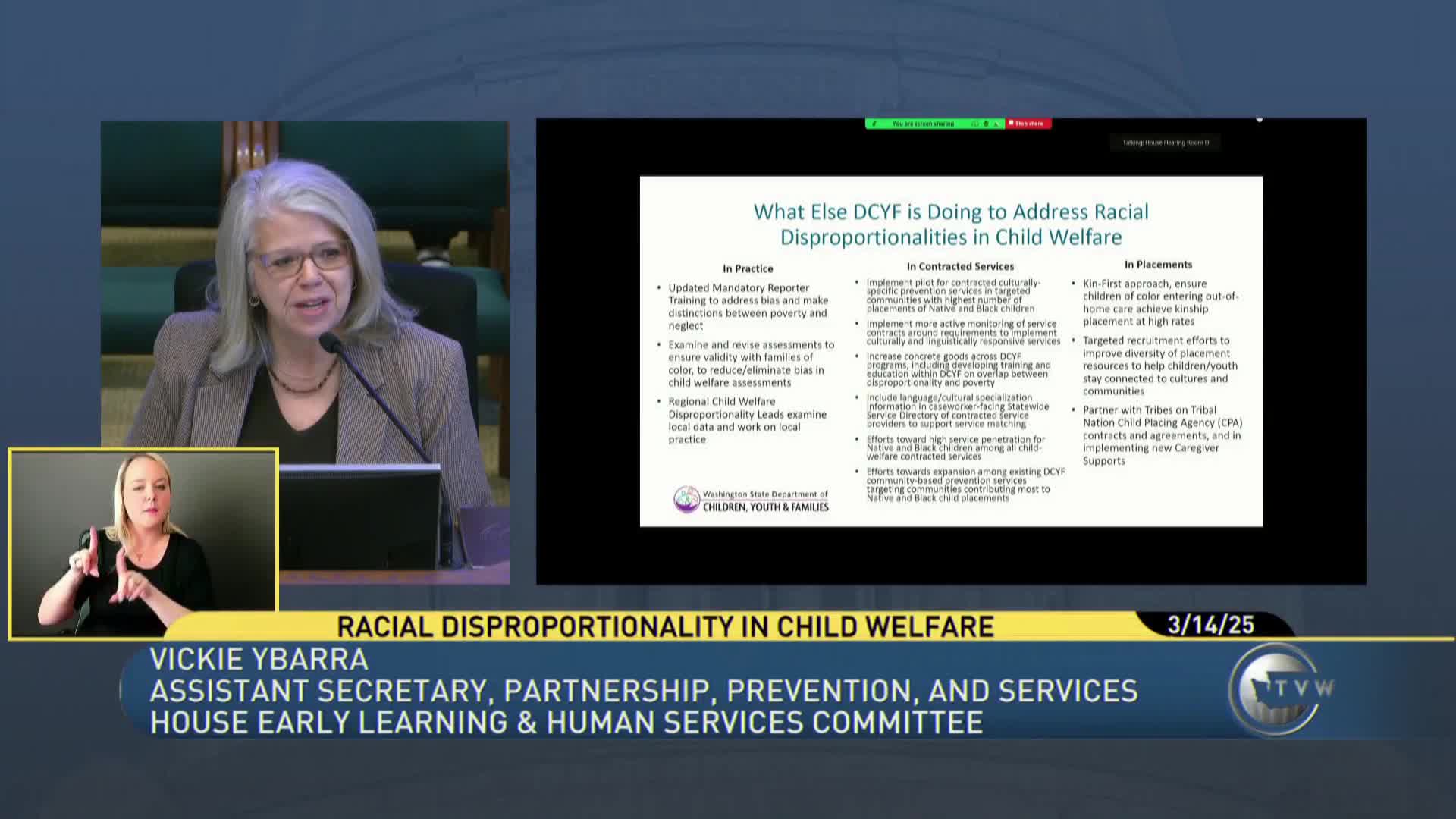Panel hears bill letting DSHS waive efforts to collect some unintentional overpayments to older adults and people with disabilities
Get AI-powered insights, summaries, and transcripts
Subscribe
Summary
The Human Services, Youth & Early Learning Committee took testimony on Senate Bill 5079, a bill that would authorize the Department of Social and Health Services to waive collection efforts for certain unintentional overpayments made under programs that serve older adults and people with disabilities.
The Human Services, Youth & Early Learning Committee took testimony on Senate Bill 5079, a bill that would authorize the Department of Social and Health Services to waive collection efforts for certain unintentional overpayments made under programs that serve older adults and people with disabilities.
O’Meara Harrington, committee staff, explained that DSHS administers the Age, Blind or Disabled (ABD) cash assistance program and a range of long‑term services and supports that can generate recoverable overpayments. Federal rules generally require the state to remit the federal share of recovered Medicaid‑funded overpayments to the Centers for Medicare & Medicaid Services; statute limits recovery after six years from notice of overpayment.
Sen. Ron Mazzal, prime sponsor, described the bill as an agency request that recognizes sometimes recovery costs exceed the value of the overpayment and that the intended beneficiaries are “the most vulnerable adults in our society.” He said the bill would allow DSHS to adopt rules defining the circumstances in which collection efforts will be waived.
Carla Reyes, Assistant Secretary for the Economic Services Administration, testified in support and described the human impact: small recoveries can leave older or disabled recipients unable to meet basic needs. She told the committee the agency estimates about 73 individuals per month would be affected (less than 1 percent of the monthly caseload) and that the fiscal note attached to the bill is about $308,000.
Members asked for implementation detail and the agency said rules and eligibility criteria would be developed by DSHS. The committee did not record a vote in the provided transcript.
